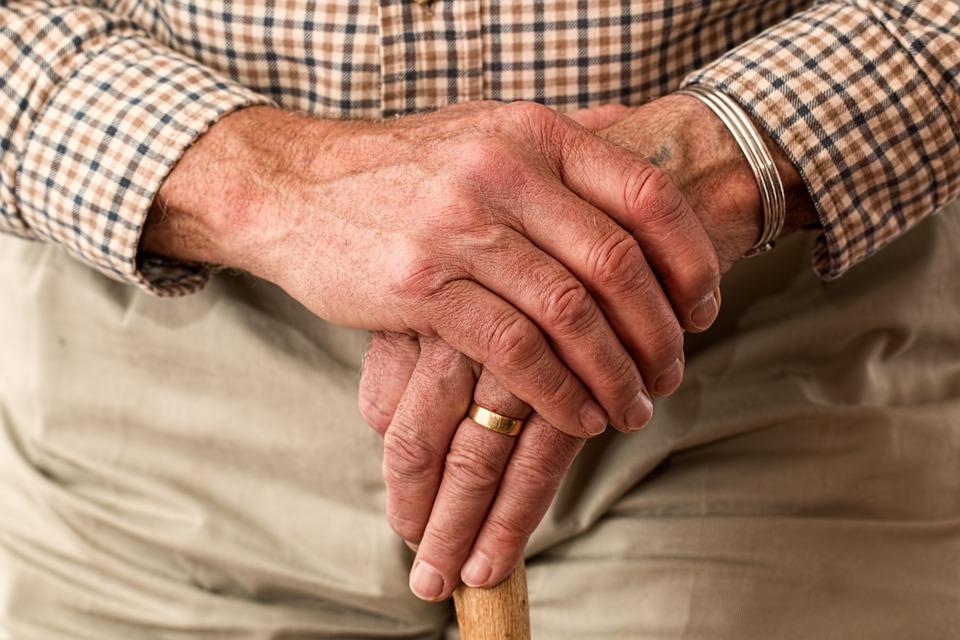The elderly population, a term which is generally agreed to mean any individual age 65 or older, is a uniquely diverse and often complex demographic to treat.
The aging baby boomers now include many frail and elderly individuals, as Knickman and Snell put in their 2002 review discussing, among several items, “the potential burden an aging society will place on the care-giving system and public finances” (Knickman & Snell, 2002).
Devastating neurodegenerative illnesses such as Alzheimer’s Disease and Parkinson’s disease, as well illnesses such as cancer and chronic pain are more prevalent in older populations and require a multimodal treatment approach. Such treatment can involve hospice care when patients are diagnosed as “prospectively dying” and are the often given very high doses of narcotics, such as morphine, to help ease this pain (Ber-sala et al., 2013) (Scitovsky, 2005).
However these powerful comfort drugs carry serious side effects that can be incredibly detrimental to one’s quality of life (Meier, 20111). A study by Ber-sala and colleagues, however, is one among several emerging studies that also indicate significant alleviation of symptoms in the elderly upon cannabis consumption (Ber-sala et al., 2013). I have discussed previously works that clearly demonstrate the efficacy of cannabis in the treatment of various disorders such as Alzheimer’s and Chronic Pain, conditions with a high prevalence in the elderly population. To this end, this article will focus on a new 2017 study by Katz and colleagues that demonstrably shows the utility and efficacy of cannabinoids in the elderly while using other related and supporting data (Katz et al., 2017). Providing safe, effective and therapeutic care for our senior citizens and adequate end of life care for hospice patients is the hallmark of a successful healthcare system and compassionate society. As such, further investigation into cannabis and cannabinoids for the elderly population is a vital responsibility for the medical community and it’s healthcare providers.
The elderly population, which is steadily increasing in numbers, is the demographic with the highest prevalence of disease and suffering (Parker et al., 1997). The need for adequate care and allocation of resources to treat this diverse population presenting with an even more diverse palette of pathologies is a critical one. Elderly patients typically consume a large amount of prescription drugs, all with varying risk and side effect profiles (Katz et al., 2017).
“Comfort Drugs” used in hospice care, such as hydrocodone, morphine and fentanyl, while generally effective at treating pain, can cause significant drowsiness and even respiratory depression, leading to death, upon overdose (Chau et al., 2008). Chau’s study also describes how normal physiologic aging can significantly alter the pharmacokinetic mechanisms of such drugs in the elderly population, which requires even greater care by the prescribing physician (Chau et al., 2008). With the mounting clinical evidence regarding the efficacy of cannabis to treat a wide variety of pathologies, including many that significantly affect the senior population, special attention should be given to the potential of adding cannabis to the arsenal of drugs to help treat the elderly.
When used simultaneously with opioids, “cannabinoids have been shown to successfully lead to a greater cumulative relief of pain” leading to patients using fewer opiods and experiencing fewer side effects. Perhaps more fascinating from a neuropharmacological standpoint is the fact that cannabinoids seemed to also “prevent the development of tolerance to and withdrawal from opiates” and is even able to essentially cause a weaker dose, that wasn’t working as efficaciously for pain relief for the patient before, to become effective once again (Lucas, 2012). The reduced side effect and high safety profile both present cannabis as a compelling alternative or adjunct to these drugs as well.
In a new 2017 review analyzing clinical evidence for the utilization of cannabinoids in the elderly by Katz and colleagues, the beneficial effects of cannabis in the elderly is implicated by just some of the major conditions cannabis is known to effectively treat in the elderly: Dementia, Parkinson’s Disease, Alzheimer’s Disease and Cancer (Katz et al., 2017).
The stigmatization of the “high” of cannabis and the social satire of the “munchies” can often detract from the medical necessities of these effects for cancer patients, many of whom report as truly depending on these characteristics of cannabis to help them through such illnesses (Waissengrin et al., 2015). Overwhelming data shows this population could potentially benefit greatly from cannabis use and only more research and more science can help change public perception.
The elderly population is one that suffers from an increased prevalence of a variety of severe pathologies, not the least of which including neurodegenerative disorders, cancer and chronic pain. A recent 2016 study found that “medical expenses more than double between ages 70 and 90” and that “ the government pays for over 65 per cent of the elderly’s medical expenses” (De Nardi et al., 2016). If the effects of cannabis can be reproduced in bigger trials, FDA approved treatments and therapies that are efficacious and successful can be implemented, healthcare costs and the benefit to society overall could improve. With a healthcare crisis already underway in our country, perhaps a paradigm shift such as this one is a promising one. Maybe the question we should be asking is not “can we afford to do this?” but rather, “can we afford not to?”









